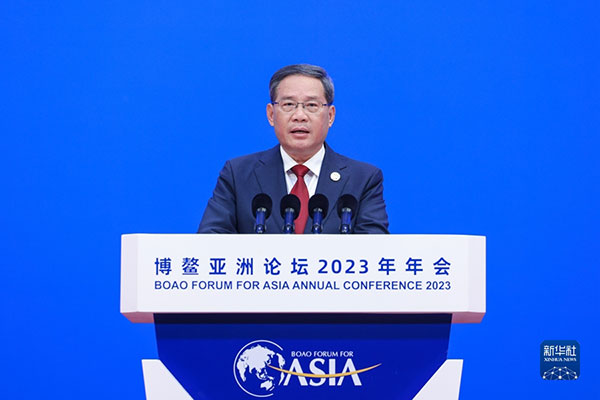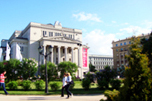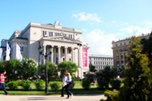Keynote Speech by H.E. Li Qiang
Premier of the State Council of the People’s Republic of China
At the Opening Plenary of
The Boao Forum for Asia Annual Conference 2023
Boao, March 30, 2023

Your Excellencies Heads of Government,
Your Excellencies Heads of International Organizations,
Your Excellencies Members of the Board of Directors of the Boao Forum for Asia,
Distinguished Guests,
Ladies and Gentlemen,
Friends,
It gives me great pleasure to join you in the beautiful Hainan island for the Boao Forum for Asia Annual Conference 2023. Let me begin by extending, on behalf of the Chinese government, warm congratulations on the opening of the Annual Conference, a hearty welcome to all participating guests, and sincere appreciation to you all for your longstanding care and support for China’s development.
The theme of this year’s Annual Conference, “An Uncertain World: Solidarity and Cooperation for Development amid Challenges”, is highly relevant to our times and responsive to our shared concerns. In a world of turmoil and transformation, humanity is faced with unprecedented challenges. Instability, uncertainty and unexpected developments have become the norm. Amid the momentous shifts where uncertainty abounds, people yearn for more and stronger forces of certainty to drive the world to a brighter future.
Ten years ago, President Xi Jinping put forward the vision of building a community with a shared future for mankind. Later, he expounded China’s proposition on this vision at this Forum and on many other international occasions, and went on to propose the Global Development Initiative (GDI), the Global Security Initiative (GSI) and the Global Civilization Initiative (GCI). These initiatives are China’s proposals for global development and governance. Over the past ten years, China has taken concrete actions to advance the building of a community with a shared future for mankind, and achieved a series of major outcomes. The high-quality Belt and Road cooperation, in particular, has helped developing countries achieve faster development and opened up new space for the growth of the world economy. Meanwhile, China has made productive efforts as a major responsible country to champion political settlement of crises, resolve international hot-spot issues, facilitate peace talks and de-escalate tensions. These are the real steps that China has taken to build a community with a shared future for mankind. What has happened shows that the vision of a community with a shared future for mankind has become a banner that guides the trend of the times and human progress, and a source of certainty for lasting peace and shared prosperity in the world.
Asia and the entire world are at a crossroads of history. We must hold high the banner of the vision of a community with a shared future for mankind, and join hands to foster an Asian community with a shared future. We need to work together to build an anchor for world peace, a source of impetus for global growth, and a new pacesetter for international cooperation, to add certainty to world peace and development and shape a better future for humanity.
First, working together to maintain a peaceful and stable environment for development to bring greater certainty to the fluid global environment. Peace is the prerequisite for development. Without a generally peaceful and stable environment, Asia’s remarkable progress in the past several decades would not have been possible. To achieve greater success, chaos and conflicts must not happen in Asia. Otherwise, the future of Asia would be lost. The Five Principles of Peaceful Coexistence and the Bandung Spirit, which were developed nearly 70 years ago, encapsulate the wisdom of the Asian people. The Asian Way of mutual respect, consensus-building and accommodating the comfort levels of all parties provides the fundamental guide for countries to pursue development through cooperation. The more turbulent the world is, the more important it is for us to cherish these invaluable assets and firmly safeguard the hard-won peaceful environment. We need to stay committed to good neighborliness and amity, support ASEAN centrality in East Asian cooperation and work with a strong sense of togetherness in face of difficulty to keep Asia peaceful and stable. We need to implement the GSI, uphold the vision of common, comprehensive, cooperative and sustainable security, oppose wanton use of unilateral sanctions and long-arm jurisdiction, reject taking sides, bloc confrontation and new Cold War, address differences and disputes through peaceful means to jointly uphold world peace and tranquility.
Second, working together to build a more vibrant center of growth to bring greater certainty to world economic recovery. Asia, with nearly 60 percent of the world’s population, almost 40 percent of the global economy and over 30 percent of international trade, is an anchor and propeller of global growth. We need to implement the GDI, seize the opportunities in the latest round of technological revolution and industrial transformation, foster new drivers of growth through cooperation on the digital economy and green economy, and make Asia a source of impetus for world economic recovery and growth. It is important to deepen regional economic integration and intensify macro policy coordination. We need to pursue high-quality implementation of the Regional Comprehensive Economic Partnership (RCEP), and actively advance negotiations on the new round of China-ASEAN FTA upgrade. We need to develop a regional structure on the division of labor that draws on comparative strengths and advances win-win cooperation, and work to foster a big regional market of greater openness. We need to build an open world economy, promote high-quality Belt and Road cooperation, further liberalize and facilitate global trade and investment, oppose trade protectionism, decoupling or cutting supply chains, keep global industrial and supply chains stable and smooth, and inject strong dynamism into the global economy.
Third, working together to expand effective ways for enhanced solidarity and cooperation to bring greater certainty to the shifting global governance. Today’s world is a global village where the futures and destinies of all countries are closely intertwined. The many global issues confronting humanity need to be addressed through consultation by all. Last year, Asian countries successfully hosted the BRICS Summit, the Leaders’ Meetings on East Asian Cooperation, the G20 Summit and the APEC Economic Leaders’ Meeting, playing an important role in improving global governance. We need to keep to the approach of extensive consultation, joint contribution and shared benefits to exercising global governance, take an active part in reforming and building the global governance system, and firmly uphold the UN-centered international system and the international order based on international law. We need to deepen cooperation on food, energy, environmental protection, disaster prevention and relief, climate response and poverty reduction, jointly make a strong call for peace and development, and send a positive signal of upholding multilateralism to make the global governance system more just and equitable.
Fourth, working together to pursue deeper and more substantive people-to-people exchanges to bring greater certainty to the interactions among civilizations. Not long ago, President Xi Jinping proposed the Global Civilization Initiative, providing an important direction for advancing inter-civilizational exchanges and mutual learning, and promoting the progress of human civilization. Asia is a showcase of cultural diversity where different civilizations enrich and inspire one another. Meanwhile, Asian countries are at different development stages, with developing countries accounting for the majority. Each country has its unique history, culture and national condition. We wish to work with all parties to implement the GCI and open up new prospects in people-to-people exchanges and cultural interactions that bring our peoples closer. We need to uphold mutual respect and trust, embrace openness and inclusiveness, respect the development paths that countries choose on their own, and reject the notion of “clash of civilizations” and ideological confrontation. We need to promote the common values of humanity, and increase exchanges in culture, education, health and among our young people and the media. We need to increase understanding and trust through sincere communication, and properly handle disagreements and problems in the spirit of seeking common ground while setting aside differences, to create a model of sound interactions among different civilizations.
Ladies and Gentlemen,
Friends,
As the world’s largest developing country, China’s development itself has global impacts. While focusing on running our own affairs well, we in China have followed the trend of the times of peace, development, cooperation and mutual benefit, and have been a builder of world peace, a contributor to global development and a defender of international order. China has created the twin miracles of rapid economic growth and enduring social stability, which in itself is a contribution to the world. In this uncertain world, the certainty that China offers is an anchor for global peace and development. This has been the case in the past, and will remain so in the future.
Looking ahead over the longer run, there is certainty in the goals and prospects of China’s development. The 20th National Congress of the Communist Party of China (CPC) held last October drew up a blueprint for China’s future development. The Congress made it clear that by the middle of the century, the central task of the CPC is to lead the Chinese people of all ethnic groups in a concerted effort to realize the second centenary goal of building China into a great modern socialist country in all respects and to advance the rejuvenation of the Chinese nation on all fronts through a Chinese path to modernization. The modernization that China aims to achieve is the modernization that involves a huge population and features common prosperity for all, material and cultural-ethical advancement, harmony between man and nature, and peaceful development. We will not pursue such modernization through war, colonization or plunder, but peace and development to bring our entire 1.4 billion-plus people into a modern society. This will create powerful impetus for economic growth in Asia and beyond. Accomplishing this central task requires long, persistent efforts. In this process, no matter how the world situation may evolve, we will stay committed to reform, opening-up and innovation-driven development. We will continue to inject new vigor and vitality into the global economic development, and welcome countries around the world to share in the opportunities and benefits that come with China’s development. I believe a China that is stable and dedicated to development, a China that is down-to-earth and pressing ahead with fortitude, and a China that is confident, open and sharing will surely be a strong force for global prosperity and stability.
Looking at the near term, both the dynamism and momentum of China’s growth are strong. In the first two months of this year, the Chinese economy showed an encouraging momentum of rebound. Major indicators including consumption and investment picked up. Employment and prices were broadly stable. Market expectations improved notably. The manufacturing PMI has remained above the 50-point mark. Several international organizations have revised up their forecasts for China’s growth this year. Perhaps more telling than the statistics is the actual situation on the ground. Take Hainan, the seat of the Boao Forum, for example. In the past, tourism usually boomed during the week of the Spring Festival holiday. Now we are seeing the “golden tourism week” extending to “golden month” and even “golden season” as the island sees a steady inflow of tourists and a sustained boom in offshore duty-free sales. It is a good indicator of the resilience, potential and vibrancy of the Chinese economy. It is also strong proof that the fundamentals underpinning China’s long-term growth are robust and China’s economic and social policies are sound and effective. Going forward, we will continue to prioritize stability, seek progress while maintaining stability, consolidate and build on the momentum of recovery and work for sustained and overall improvement in the economic performance. We will combine the strategy of expanding domestic demand with deepening supply-side structural reform to make China’s market even bigger. We will roll out new measures to increase market access, improve the business climate and ensure the delivery of projects to create a better institutional environment that enables SOEs to take new initiative, private companies to break new ground and foreign companies to make new investment. We will effectively prevent and defuse major risks, safeguard the overall stability of China’s financial sector in particular, and guard against systemic risks. We have the confidence and ability to sail the giant ship of the Chinese economy steadily ahead against all winds and waves, and make even greater contributions to the global economy.
Ladies and Gentlemen,
Friends,
There is another big event in Asia this year. That is the 19th Asian Games to be held in Hangzhou of China this autumn. The pandemic may have postponed the Games, but it also made us look even more forward to this rendezvous. The coastlines in Hainan and the West Lake in Hangzhou are just two of the many beautiful places across China. We welcome you to visit more places. Where there are scenic areas, there is new economy and business opportunities for win-win cooperation. I am confident that as we join hands to meet challenges through cooperation, and promote development with an open and inclusive mind, we will bring greater certainty to Asia and the world, and usher in an even brighter future for humankind.
To conclude, I wish this year’s Boao Forum for Asia a full success.
Thank you.







